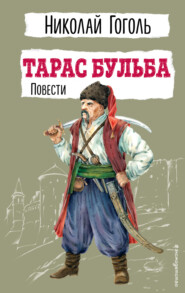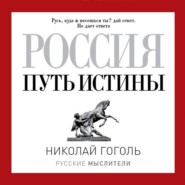По всем вопросам обращайтесь на: info@litportal.ru
(©) 2003-2024.
✖
The Mantle, and Other Stories
Год написания книги
2017
Настройки чтения
Размер шрифта
Высота строк
Поля
Akaki made long calculations, and at last determined that he must, at least for a whole year, reduce some of his daily expenses. He would have to give up his tea in the evening, and copy his documents in his landlady's room, in order to economise the fuel in his own. He also resolved to avoid rough pavements as much as possible, in order to spare his shoes; and finally to give out less washing to the laundress.
At first he found these deprivations rather trying; but gradually he got accustomed to them, and at last took to going to bed without any supper at all. Although his body suffered from this abstinence, his spirit derived all the richer nutriment from perpetually thinking about his new cloak. From that time it seemed as though his nature had completed itself; as though he had married and possessed a companion on his life journey. This companion was the thought of his new cloak, properly wadded and lined.
From that time he became more lively, and his character grew stronger, like that of a man who has set a goal before himself which he will reach at all costs. All that was indecisive and vague in his gait and gestures had disappeared. A new fire began to gleam in his eyes, and in his bold dreams he sometimes even proposed to himself the question whether he should not have a marten-fur collar made for his coat.
These and similar thoughts sometimes caused him to be absent-minded. As he was copying his documents one day he suddenly noticed that he had made a slip. “Ugh!” he exclaimed, and crossed himself.
At least once a month he went to Petrovitch to discuss the precious cloak with him, and to settle many important questions, e.g. where and at what price he should buy the cloth, and what colour he should choose.
Each of these visits gave rise to new discussions, but he always returned home in a happier mood, feeling that at last the day must come when all the materials would have been bought and the cloak would be lying ready to put on.
This great event happened sooner than he had hoped. The director gave him a bonus, not of forty or fifty, but of five-and-sixty roubles. Had the worthy official noticed that Akaki needed a new mantle, or was the exceptional amount of the gift only due to chance?
However that might be, Akaki was now richer by twenty roubles. Such an access of wealth necessarily hastened his important undertaking. After two or three more months of enduring hunger, he had collected his eighty roubles. His heart, generally so quiet, began to beat violently; he hastened to Petrovitch, who accompanied him to a draper's shop. There, without hesitating, they bought a very fine piece of cloth. For more than half a year they had discussed the matter incessantly, and gone round the shops inquiring prices. Petrovitch examined the cloth, and said they would not find anything better. For the lining they chose a piece of such firm and thickly woven linen that the tailor declared it was better than silk; it also had a splendid gloss on it. They did not buy marten fur, for it was too dear, but chose the best catskin in the shop, which was a very good imitation of the former.
It took Petrovitch quite fourteen days to make the mantle, for he put an extra number of stitches into it. He charged twelve roubles for his work, and said he could not ask less; it was all sewn with silk, and the tailor smoothed the sutures with his teeth.
At last the day came – I cannot name it certainly, but it assuredly was the most solemn in Akaki's life – when the tailor brought the cloak. He brought it early in the morning, before the titular councillor started for his office. He could not have come at a more suitable moment, for the cold had again begun to be very severe.
Petrovitch entered the room with the dignified mien of an important tailor. His face wore a peculiarly serious expression, such as Akaki had never seen on it. He was fully conscious of his dignity, and of the gulf which separates the tailor who only repairs old clothes from the artist who makes new ones.
The cloak had been brought wrapped up in a large, new, freshly washed handkerchief, which the tailor carefully opened, folded, and placed in his pocket. Then he proudly took the cloak in both hands and laid it on Akaki Akakievitch's shoulders. He pulled it straight behind to see how it hung majestically in its whole length. Finally he wished to see the effect it made when unbuttoned. Akaki, however, wished to try the sleeves, which fitted wonderfully well. In brief, the cloak was irreproachable, and its fit and cut left nothing to be desired.
While the tailor was contemplating his work, he did not forget to say that the only reason he had charged so little for making it, was that he had only a low rent to pay and had known Akaki Akakievitch for a long time; he declared that any tailor who lived on the Nevski Prospect would have charged at least five-and-sixty roubles for making up such a cloak.
The titular councillor did not let himself be involved in a discussion on the subject. He thanked him, paid him, and then sallied forth on his way to the office.
Petrovitch went out with him, and remained standing in the street to watch Akaki as long as possible wearing the mantle; then he hurried through a cross-alley and came into the main street again to catch another glimpse of him.
Akaki went on his way in high spirits. Every moment he was acutely conscious of having a new cloak on, and smiled with sheer self-complacency. His head was filled with only two ideas: first that the cloak was warm, and secondly that it was beautiful. Without noticing anything on the road, he marched straight to the chancellery, took off his treasure in the hall, and solemnly entrusted it to the porter's care.
I do not know how the report spread in the office that Akaki's old cloak had ceased to exist. All his colleagues hastened to see his splendid new one, and then began to congratulate him so warmly that he at first had to smile with self-satisfaction, but finally began to feel embarrassed.
But how great was his surprise when his cruel colleagues remarked that he should formally “handsel” his cloak by giving them a feast! Poor Akaki was so disconcerted and taken aback, that he did not know what to answer nor how to excuse himself. He stammered out, blushing, that the cloak was not so new as it appeared; it was really second-hand.
One of his superiors, who probably wished to show that he was not too proud of his rank and title, and did not disdain social intercourse with his subordinates, broke in and said, “Gentlemen! Instead of Akaki Akakievitch, I will invite you to a little meal. Come to tea with me this evening. To-day happens to be my birthday.”
All the others thanked him for his kind proposal, and joyfully accepted his invitation. Akaki at first wished to decline, but was told that to do so would be grossly impolite and unpardonable, so he reconciled himself to the inevitable. Moreover, he felt a certain satisfaction at the thought that the occasion would give him a new opportunity of displaying his cloak in the streets. This whole day for him was like a festival day. In the cheerfullest possible mood he returned home, took off his cloak, and hung it up on the wall after once more examining the cloth and the lining. Then he took out his old one in order to compare it with Petrovitch's masterpiece. His looks passed from one to the other, and he thought to himself, smiling, “What a difference!”
He ate his supper cheerfully, and after he had finished, did not sit down as usual to copy documents. No; he lay down, like a Sybarite, on the sofa and waited. When the time came, he made his toilette, took his cloak, and went out.
I cannot say where was the house of the superior official who so graciously invited his subordinates to tea. My memory begins to grow weak, and the innumerable streets and houses of St Petersburg go round so confusedly in my head that I have difficulty in finding my way about them. So much, however, is certain: that the honourable official lived in a very fine quarter of the city, and therefore very far from Akaki Akakievitch's dwelling.
At first the titular councillor traversed several badly lit streets which seemed quite empty; but the nearer he approached his superior's house, the more brilliant and lively the streets became. He met many people, among whom were elegantly dressed ladies, and men with beaverskin collars. The peasants' sledges, with their wooden seats and brass studs, became rarer; while now every moment appeared skilled coachmen with velvet caps, driving lacquered sleighs covered with bearskins, and fine carriages.
At last he reached the house whither he had been invited. His host lived in a first-rate style; a lamp hung before his door, and he occupied the whole of the second story. As Akaki entered the vestibule, he saw a long row of galoshes; on a table a samovar was smoking and hissing; many cloaks, some of them adorned with velvet and fur collars, hung on the wall. In the adjoining room he heard a confused noise, which assumed a more decided character when a servant opened the door and came out bearing a tray full of empty cups, a milk-jug, and a basket of biscuits. Evidently the guests had been there some time and had already drunk their first cup of tea.
After hanging his cloak on a peg, Akaki approached the room in which his colleagues, smoking long pipes, were sitting round the card-table and making a good deal of noise. He entered the room, but remained standing by the door, not knowing what to do; but his colleagues greeted him with loud applause, and all hastened into the vestibule to take another look at his cloak. This excitement quite robbed the good titular councillor of his composure; but in his simplicity of heart he rejoiced at the praises which were lavished on his precious cloak. Soon afterwards his colleagues left him to himself and resumed their whist parties.
Akaki felt much embarrassed, and did not know what to do with his feet and hands. Finally he sat down by the players; looked now at their faces and now at the cards; then he yawned and remembered that it was long past his usual bedtime. He made an attempt to go, but they held him back and told him that he could not do so without drinking a glass of champagne on what was for him such a memorable day.
Soon supper was brought. It consisted of cold veal, cakes, and pastry of various kinds, accompanied by several bottles of champagne. Akaki was obliged to drink two glasses of it, and found everything round him take on a more cheerful aspect. But he could not forget that it was already midnight and that he ought to have been in bed long ago. From fear of being kept back again, he slipped furtively into the vestibule, where he was pained to find his cloak lying on the ground. He carefully shook it, brushed it, put it on, and went out.
The street-lamps were still alight. Some of the small ale-houses frequented by servants and the lower classes were still open, and some had just been shut; but by the beams of light which shone through the chinks of the doors, it was easy to see that there were still people inside, probably male and female domestics, who were quite indifferent to their employers' interests.
Akaki Akakievitch turned homewards in a cheerful mood. Suddenly he found himself in a long street where it was very quiet by day and still more so at night. The surroundings were very dismal. Only here and there hung a lamp which threatened to go out for want of oil; there were long rows of wooden houses with wooden fences, but no sign of a living soul. Only the snow in the street glimmered faintly in the dim light of the half-extinguished lanterns, and the little houses looked melancholy in the darkness.
Akaki went on till the street opened into an enormous square, on the other side of which the houses were scarcely visible, and which looked like a terrible desert. At a great distance – God knows where! – glimmered the light in a sentry-box, which seemed to stand at the end of the world. At the same moment Akaki's cheerful mood vanished. He went in the direction of the light with a vague sense of depression, as though some mischief threatened him. On the way he kept looking round him with alarm. The huge, melancholy expanse looked to him like a sea. “No,” he thought to himself, “I had better not look at it”; and he continued his way with his eyes fixed on the ground. When he raised them again he suddenly saw just in front of him several men with long moustaches, whose faces he could not distinguish. Everything grew dark before his eyes, and his heart seemed to be constricted.
“That is my cloak!” shouted one of the men, and seized him by the collar. Akaki tried to call for help. Another man pressed a great bony fist on his mouth, and said to him, “Just try to scream again!” At the same moment the unhappy titular councillor felt the cloak snatched away from him, and simultaneously received a kick which stretched him senseless in the snow. A few minutes later he came to himself and stood up; but there was no longer anyone in sight. Robbed of his cloak, and feeling frozen to the marrow, he began to shout with all his might; but his voice did not reach the end of the huge square. Continuing to shout, he ran with the rage of despair to the sentinel in the sentry-box, who, leaning on his halberd, asked him why the deuce he was making such a hellish noise and running so violently.
When Akaki reached the sentinel, he accused him of being drunk because he did not see that passers-by were robbed a short distance from his sentry-box.
“I saw you quite well,” answered the sentinel, “in the middle of the square with two men; I thought you were friends. It is no good getting so excited. Go to-morrow to the police inspector; he will take up the matter, have the thieves searched for, and make an examination.”
Akaki saw there was nothing to be done but to go home. He reached his dwelling in a state of dreadful disorder, his hair hanging wildly over his forehead, and his clothes covered with snow. When his old landlady heard him knocking violently at the door, she sprang up and hastened thither, only half-dressed; but at the sight of Akaki started back in alarm. When he told her what had happened, she clasped her hands together and said, “You should not go to the police inspector, but to the municipal Superintendent of the district. The inspector will put you off with fine words, and do nothing; but I have known the Superintendent for a long time. My former cook, Anna, is now in his service, and I often see him pass by under our windows. He goes to church on all the festival-days, and one sees at once by his looks that he is an honest man.”
After hearing this eloquent recommendation, Akaki retired sadly to his room. Those who can picture to themselves such a situation will understand what sort of a night he passed. As early as possible the next morning he went to the Superintendent's house. The servants told him that he was still asleep. At ten o'clock he returned, only to receive the same reply. At twelve o'clock the Superintendent had gone out.
About dinner-time the titular councillor called again, but the clerks asked him in a severe tone what was his business with their superior. Then for the first time in his life Akaki displayed an energetic character. He declared that it was absolutely necessary for him to speak with the Superintendent on an official matter, and that anyone who ventured to put difficulties in his way would have to pay dearly for it.
This left them without reply. One of the clerks departed, in order to deliver his message. When Akaki was admitted to the Superintendent's presence, the latter's way of receiving his story was somewhat singular. Instead of confining himself to the principal matter – the theft, he asked the titular councillor how he came to be out so late, and whether he had not been in suspicious company.
Taken aback by such a question, Akaki did not know what to answer, and went away without knowing whether any steps would be taken in the matter or not.
The whole day he had not been in his office – a perfectly new event in his life. The next day he appeared there again with a pale face and restless aspect, in his old cloak, which looked more wretched than ever. When his colleagues heard of his misfortune, some were cruel enough to laugh; most of them, however, felt a sincere sympathy with him, and started a subscription for his benefit; but this praiseworthy undertaking had only a very insignificant result, because these same officials had been lately called upon to contribute to two other subscriptions – in the first case to purchase a portrait of their director, and in the second to buy a work which a friend of his had published.
One of them, who felt sincerely sorry for Akaki, gave him some good advice for want of something better. He told him it was a waste of time to go again to the Superintendent, because even in case that this official succeeded in recovering the cloak, the police would keep it till the titular councillor had indisputably proved that he was the real owner of it. Akaki's friend suggested to him to go to a certain important personage, who because of his connection with the authorities could expedite the matter.
In his bewilderment, Akaki resolved to follow this advice. It was not known what position this personage occupied, nor how high it really was; the only facts known were that he had only recently been placed in it, and that there must be still higher personages than himself, as he was leaving no stone unturned in order to get promotion. When he entered his private room, he made his subordinates wait for him on the stairs below, and no one had direct access to him. If anyone called with a request to see him, the secretary of the board informed the Government secretary, who in his turn passed it on to a higher official, and the latter informed the important personage himself.
That is the way business is carried on in our Holy Russia. In the endeavour to resemble the higher officials, everyone imitates the manners of his superiors. Not long ago a titular councillor, who was appointed to the headship of a little office, immediately placed over the door of one of his two tiny rooms the inscription “Council-chamber.” Outside it were placed servants with red collars and lace-work on their coats, in order to announce petitioners, and to conduct them into the chamber which was hardly large enough to contain a chair.
But let us return to the important personage in question. His way of carrying things on was dignified and imposing, but a trifle complicated. His system might be summed up in a single word – “severity.” This word he would repeat in a sonorous tone three times in succession, and the last time turn a piercing look on the person with whom he happened to be speaking. He might have spared himself the trouble of displaying so much disciplinary energy; the ten officials who were under his command feared him quite sufficiently without it. As soon as they were aware of his approach, they would lay down their pens, and hasten to station themselves in a respectful attitude as he passed by. In converse with his subordinates, he preserved a stiff, unbending attitude, and generally confined himself to such expressions as “What do you want? Do you know with whom you are speaking? Do you consider who is in front of you?”
For the rest, he was a good-natured man, friendly and amiable with his acquaintances. But the title of “District-Superintendent” had turned his head. Since the time when it had been bestowed upon him, he lived for a great part of the day in a kind of dizzy self-intoxication. Among his equals, however, he recovered his equilibrium, and then showed his real amiability in more than one direction; but as soon as he found himself in the society of anyone of less rank than himself, he entrenched himself in a severe taciturnity. This situation was all the more painful for him as he was quite aware that he might have passed his time more agreeably.
All who watched him at such moments perceived clearly that he longed to take part in an interesting conversation, but that the fear of displaying some unguarded courtesy, of appearing too confidential, and thereby doing a deadly injury to his dignity, held him back. In order to avoid such a risk, he maintained an unnatural reserve, and only spoke from time to time in monosyllables. He had driven this habit to such a pitch that people called him “The Tedious,” and the title was well deserved.
Such was the person to whose aid Akaki wished to appeal. The moment at which he came seemed expressly calculated to flatter the Superintendent's vanity, and accordingly to help forward the titular councillor's cause.
The high personage was seated in his office, talking cheerfully with an old friend whom he had not seen for several years, when he was told that a gentleman named Akakievitch begged for the honour of an interview.
“Who is the man?” asked the Superintendent in a contemptuous tone.
“An official,” answered the servant.
“He must wait. I have no time to receive him now.”

















